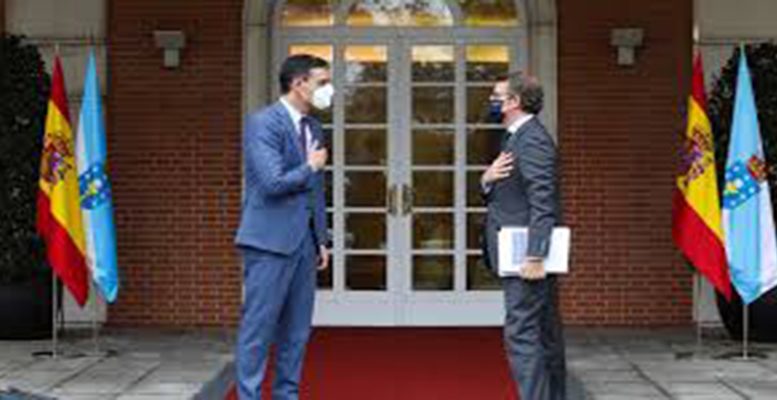Fernando González Urbaneja| If we have to choose the highlights of Pedro Sánchez’s leadership trajectory, one of them would have to be the “No is No” (what part of this has not been understood?) It was his entry through the big door of political decisions by not enabling a new government after the first elections of 2016 with a tactical abstention, which mathematically blocked the forming of a parliamentary majority government. The “No” led to new elections and another refusal by Sánchez that cost him the socialist leadership. Without Sánchez, with the argument of governability, the socialists enabled the second Rajoy government. With the asset of “No is No” and “no mercy for the enemy”, (the right), Sánchez reconquered the socialist leadership in the primaries. And from that platform he confirmed the “No is No” strategy (i.e. against the PP) with a successful and unexpected vote of no confidence that neither Rajoy nor the PP could see coming.
“No is No” with the PP returned to the political scene in the new elections (2019) called by Pedro Sánchez with results that imposed broad coalitions that had never been contemplated in the programmes and political offers of the two electoral campaigns of that year. “No is No” is what has been the can opener of power for Sánchez and continues to be so after the successive partial defeats of the socialists in Madrid, Andalusia and last Sunday’s municipal/regional elections.
At this point, and given that the Popular Front scheme (alliance with the left and the nationalists) gives little in the way of electoral returns, the tone of the campaign that began on Sunday revolves once again around the “No is No” conference model for the Popular Party. A model that involves presenting the PP (Rajoy’s, Casado’s and Feijóo’s) as something akin to the Spanish and European extreme right, that is, to VOX and the European right-wing populists (the Hungarians, Poles, French and Italians).
This has been the strategy of Podemos (the right is fascist) and also of Sánchez (to his right lies the abyss). In his first speech to the socialist leadership (parliamentary groups) Sánchez used the term “Trumpism” to describe his adversaries. The setting and format in Congress was not that of a rally (even if it had that tone) with an audience with a certain level of education and knowledge about what “Trumpism” means and his respect for democracy and institutions.
At this point it seems interesting to me to propose the use of an instrument of measurement and comparison to conclude which of the current Spanish political leaders has a bias more or less close to Trumpism in terms of narcissism, fickleness and fulfilment of commitments. Presenting Feijóo as close or equivalent to Trump seems to me to be an exercise in tightrope walking with little substance.
The success or failure of a strategy based on an argument that labels the PP as ultra, extreme right or far right (it doesn’t matter) has been verified in three elections of different rank (Madrid, Andalusia, municipal elections) and in all cases the PSOE did badly. To insist on this framework, which is that of Podemos, is coherent with the “No is No” and with the manual of resistance. The result of the model will be known on the night of 23 July.





